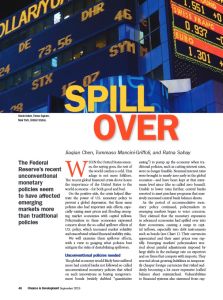Join getAbstract to access the summary!

Join getAbstract to access the summary!
Jiaqian Chen, Tommaso Mancini-Griffoli and Ratna Sahay
Spillover
IMF, 2015
What's inside?
US monetary policy can negatively affect emerging market economies, but developed and developing countries can prepare to lessen its impact.
Recommendation
The United States’ drastic measure of quantitative easing helped forestall an even deeper global economic crisis than the one that began in 2008. But while American monetary policy may have helped ward off a worldwide depression, it also had some harmful consequences in emerging markets. Economists Jiaqian Chen, Tommaso Mancini-Griffoli and Ratna Sahay at the International Monetary Fund have analyzed the past effects of US monetary policy on emerging economies and offer some guidance on how both developed and developing countries can prepare to lessen the future impacts of policy announcements. With helpful charts and accessible language, their report provides a concise update on what markets might expect as the Federal Reserve prepares to raise interest rates. getAbstract recommends this informative study to central bankers, economists and policy makers.
Summary
About the Authors
Jiaqian Chen is an economist at the International Monetary Fund, where Tommaso Mancini-Griffoli is a senior financial sector expert and Ratna Sahay a deputy director.




























Comment on this summary